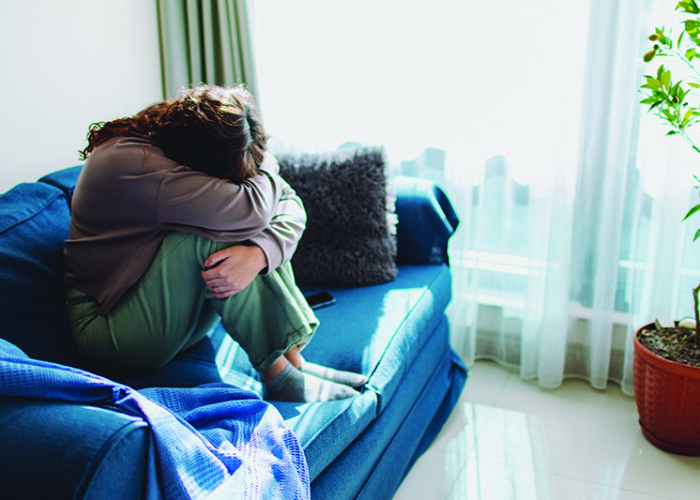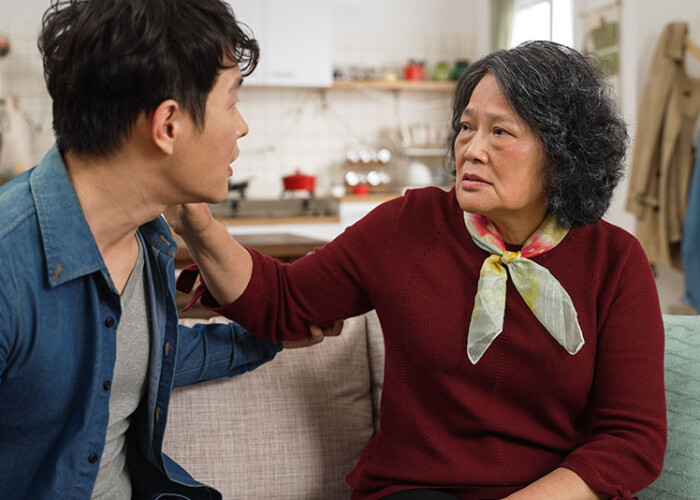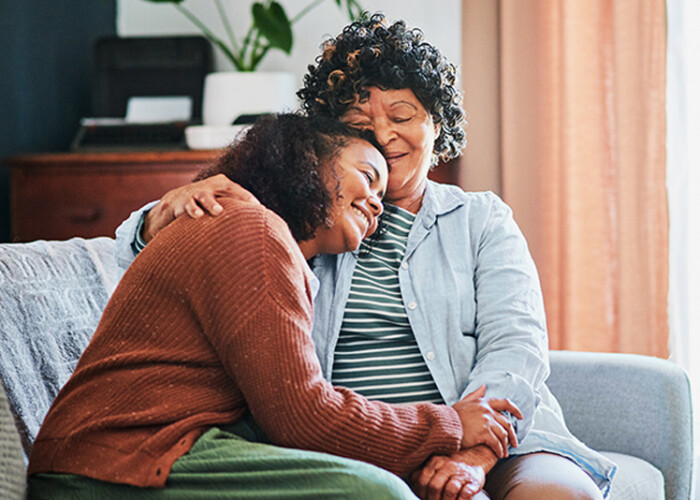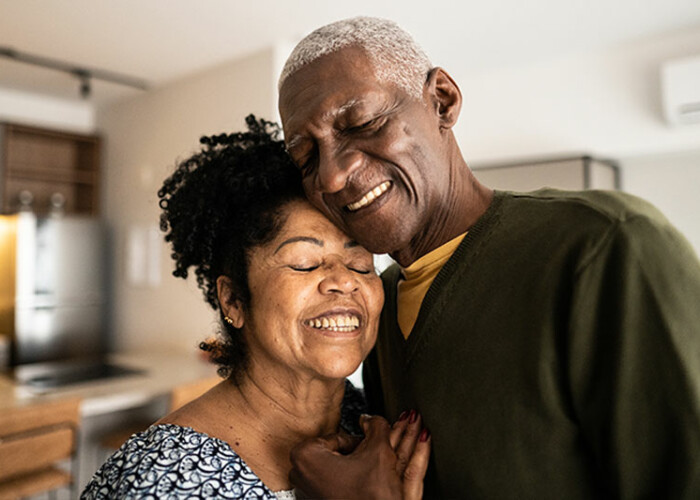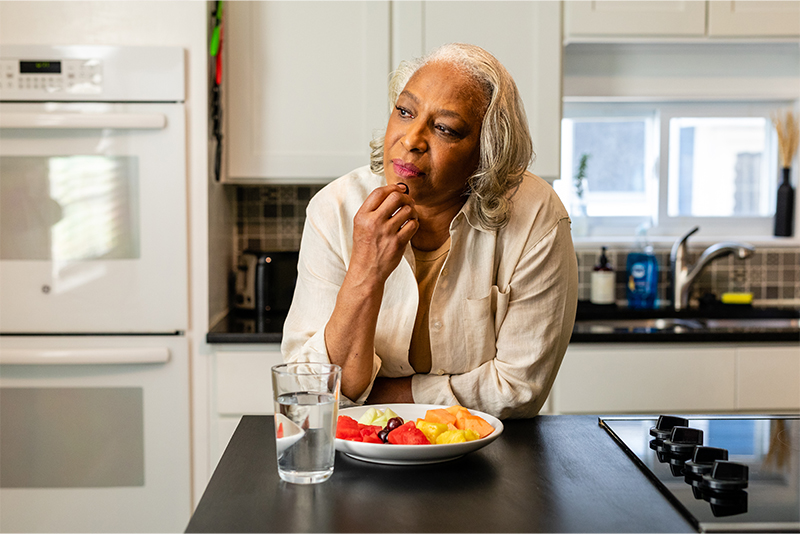Caregiver Mental Health
Could You Be Experiencing Caregiver PTSD?
Caregiver PTSD is, surprisingly, the most common form of post-traumatic stress disorder.
When you think of PTSD (post-traumatic stress disorder), your mind might conjure images of soldiers returning from battle or individuals who’ve faced extreme life-threatening events. While PTSD is certainly linked to those experiences, it isn’t confined to them. In fact, PTSD can develop after any deeply distressing event—including providing care for a family member. Surprising, isn’t it? Caregiver PTSD is a significant yet often overlooked issue, as the focus is typically placed on the person receiving care rather than the caregiver’s emotional and mental health.
How to Handle Loss of Recognition in Dementia
Loss of recognition in dementia is never easy to accept, but these tips will help.
You’ve been caring for your mom since her dementia diagnosis, doing your best to manage the ups and downs of the disease. One day, she looks at you with a blank stare or calls you by the name of someone else—a sibling, her spouse, or even her own parent. The sting of the loss of recognition in dementia is overwhelming. Should you correct her? Ignore it? Or embrace the new role she’s assigned you?
Recognition loss is one of dementia’s most heartbreaking effects. Watching someone you love struggle to connect the dots of who you are is never easy. However, how you respond in these moments can shape the interaction and bring peace to the person you love.
How to Respond to Recognition … Read More »
Happy Holidays!
Whatever is Beautiful
and Meaningful,
whatever brings you
Peace and Happiness,
may it be yours
this Holiday Season!
Healthy Ways to Manage Emotional Empathy for Caregivers
Balancing emotional empathy for caregivers can lead to healthier, more compassionate care for the person you love.
Empathy is, naturally, a crucial characteristic of effective caregiving. The ability to put yourself in another person’s shoes helps you to better meet their needs. However, there is a particular form of empathy you need to understand in order to guard your own health and wellness: emotional empathy for caregivers.
Emotional empathy takes caring to another level. Instead of simply understanding how another person is feeling, emotional empathy includes actually experiencing their feelings. For instance, if you’re someone who is highly emotionally empathetic, sitting beside a person who is crying will bring tears to your own eyes. If they’re in pain, you’ll also experience distress. You’re the type of person who will spring into action when someone has an immediate need.
Read More »
Feeling Bored as a Caregiver? Try These Ideas!
If you’re feeling bored as a caregiver, try these helpful suggestions.
It’s hard to admit but even harder to avoid. Feeling bored as a caregiver is a common response to spending so much time together, completing the same tasks, engaging in the exact same activities, and running out of intriguing conversation topics. This is not by any means associated with your feelings for the person in your care. In fact, they could be feeling just as tired of a stagnant routine.
How to Become a More Patient Caregiver
Find the tips you need here to learn how to become a more patient caregiver.
Does your blood pressure soar once you finally finish filling your cart with groceries, simply to find only one checkout lane open and a line of aggravated shoppers in front of you? Or when you arrive 5 minutes early for a doctor’s appointment, but have to wait 40 minutes to be seen? Many people just seem to exude an innate sense of patience, regardless of the circumstances. Wouldn’t you like to know their secret, particularly when it comes to knowing how to become a more patient caregiver for someone you love?
What to Do When a Parent Refuses Care
When a parent refuses care, these tips can help you come to a resolution.
Let’s say you’re starting to notice some warning signs that cause you to worry about Dad’s ability to continue to take care of himself. Perhaps he’s struggling to maintain the home the way he always has. Or maybe he had a close call while driving that could have caused injury to himself or another person. Maybe he just seems more disoriented lately. Whatever the reason, you’ve decided to talk with him about home care services. The problem is, he refuses to even entertain the idea. What are you to do when a parent refuses care that they desperately need?
If you’re at an impasse on how to proceed, these ideas can be helpful.
Let him know you’re in this together. Digging in your heels and … Read More »
How to Be a Partner and Not a Parent as a Spousal Caregiver
We have tips to help you maintain your relationship while being a spousal caregiver.
Healthy, long-term relationships take commitment, sacrifice, and compromise. The happiest relationships are those where both parties selflessly take care of each other. This balance shifts, however, if the person you love experiences a significant health concern. And this shift can have a devastating effect on the dynamics of your relationship if you’re not vigilant, as you find yourself in the role of a spousal caregiver.
It’s natural to want to help your spouse in whatever way you can as their health needs change. However, it’s vital that you ensure you are not sacrificing your romantic connection in the process. Attempting to parent your partner can result in resentment – for both of you. To promote healthy boundaries, keep the following in mind:
• Find … Read More »
We Can Help You Avoid Caregiver Isolation
Caregiver isolation doesn’t have to be a part of your caregiver experience.
It may seem counterintuitive, but spending all your time taking care of someone else can make you feel extremely alone. The hard truth is that caregiver isolation is very common for a number of reasons:
• Feeling guilty about any time you don’t spend with the person you care for
• Being mentally or physically exhausted: you are simply too drained to want to socialize
• Resentment toward those whose lives seem so much simpler
• And much more
While experiencing the loneliness of caregiving can feel overwhelming, it’s important to take the proper steps to fight back. Social isolation can lead to serious health concerns, such as heart problems, depression, stroke, high blood pressure, and difficulties with attention and memory, just to name a few.
Read More »
Feeling Overloaded With Caring for a Loved One? These Tips Can Help!
If you’re feeling overloaded with caring for a loved one, we have three simple steps you can take to ease the strain.
If today’s to-dos seem like a lot more than you are able to possibly squeeze into 24 short hours, you are not alone! Family caregivers frequently are feeling overloaded with caring for a loved one and the daily required tasks: Personal care and hygiene. Planning and preparing meals. Medical appointments. Planning activities that are purposeful and enjoyable for the older adult. Shopping and other errands. Housework and laundry. And all of this is on top of meeting the requirements of your own spouse, children, household, and if there is any time left over, yourself!
We invite you to hit the pause button for just a minute, take a deep breath, and put into action these tried-and-true … Read More »


